According to a recent report by Mental Health America, 21 percent of adults and 16 percent of youth suffer from mental health issues in the US. The report also finds a shortage of professionals to help, with an average of 350 patients per provider.
According to Gray’s analysis of BLS and US data, there were 22,934 job postings for Master’s in Mental Health graduates in 2022 – about one job posting per 158,666 people employed in the field, which is not particularly high. From another perspective, we can compare the number of completions to the number of jobs in this field to see if schools will produce enough graduates to meet employer needs. There were 8,957 completions in 2021 – roughly 2.5 job postings per graduate in Mental Health Counseling, which is about average for all programs. However, this still leaves a question: will the number of graduates increase fast enough to keep up with the growing need for mental health services?
Student Demand for Master’s Programs in Mental Health Services
Using data from National Student Clearinghouse, we looked at enrollment in master’s programs in mental and social health services disciplines (CIP 51.15) from Fall 2018 to Fall 2022 (the most recent release by program). Mental Health Counseling and Marriage and Family Therapy Counseling had the highest total enrollment, and they are growing. Mental Health Counseling has grown nine percent on average annually since Fall 2018. These are robust growth rates, but the number of graduates may fall short of employer demand if mental health issues continue to increase.
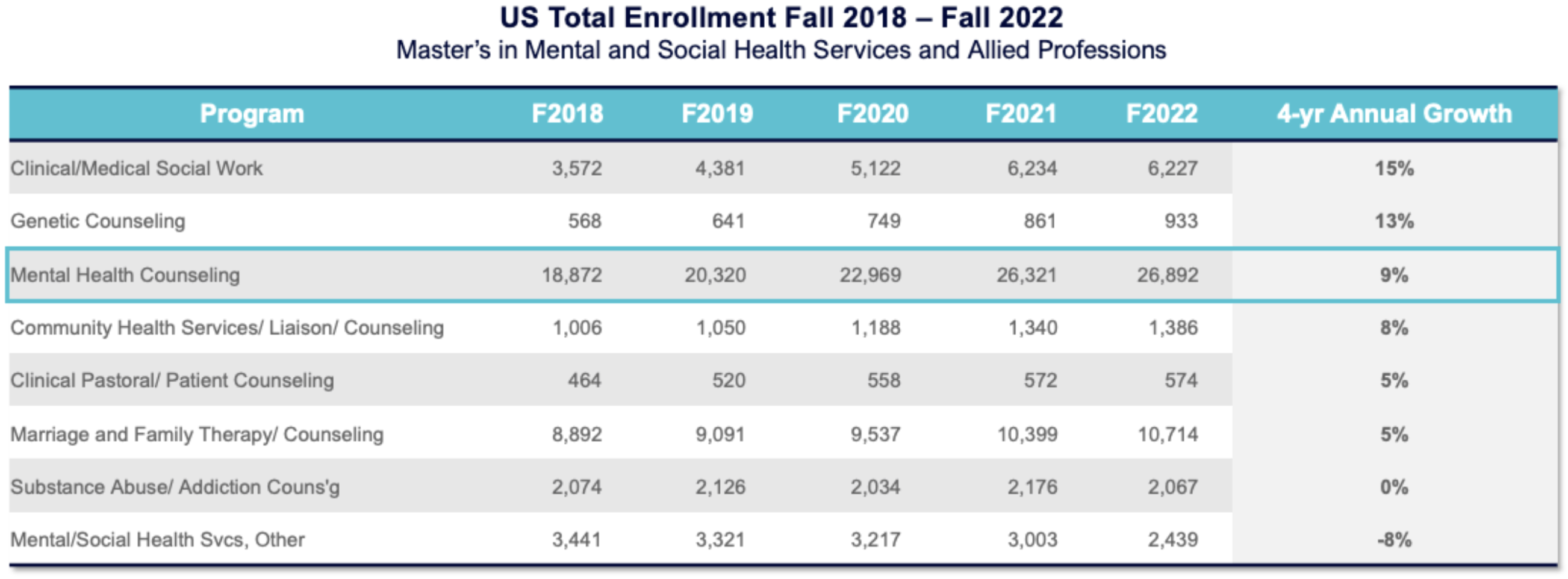
Source: Gray analysis of National Student Clearinghouse data
We did a deeper dive into the data to see if a Master’s in Mental Health Counseling program would be a good idea to launch or grow at your institution to help alleviate the shortage.
Mental Health Counseling Programs
Enrollment is a key indicator of student demand, but only one of three data sources we analyze. We also looked at program completions and Google keyword search data.
IPEDS completions data is less current than enrollment because the latest data is from 2021. It reflects what master’s programs students chose in 2019 at the latest. It is useful when analyzed in conjunction with more current data.
Mental Health Counseling completions at the master’s level have risen steadily since 2016. Online programs, which account for 35 percent of total 2021 completions, have increased 11 percent annually since 2016, while on-campus programs increased by five percent.
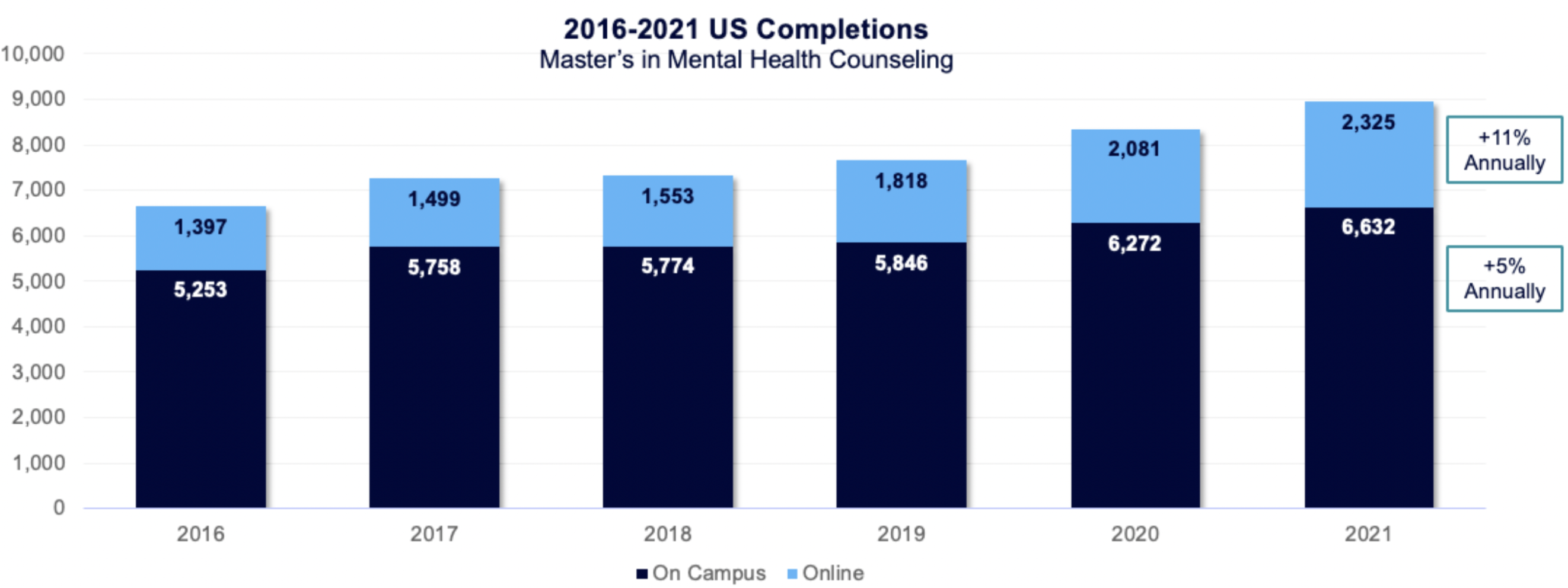
Source: Gray analysis of IPEDS data
Google keyword searches is the best source for information on the future student demand for a program. Our keyword search dashboard for academic programs is updated monthly and indicates what programs students are searching for now and might take in the future. In March, Google searches for mental health counseling programs grew 29 percent year-over-year.
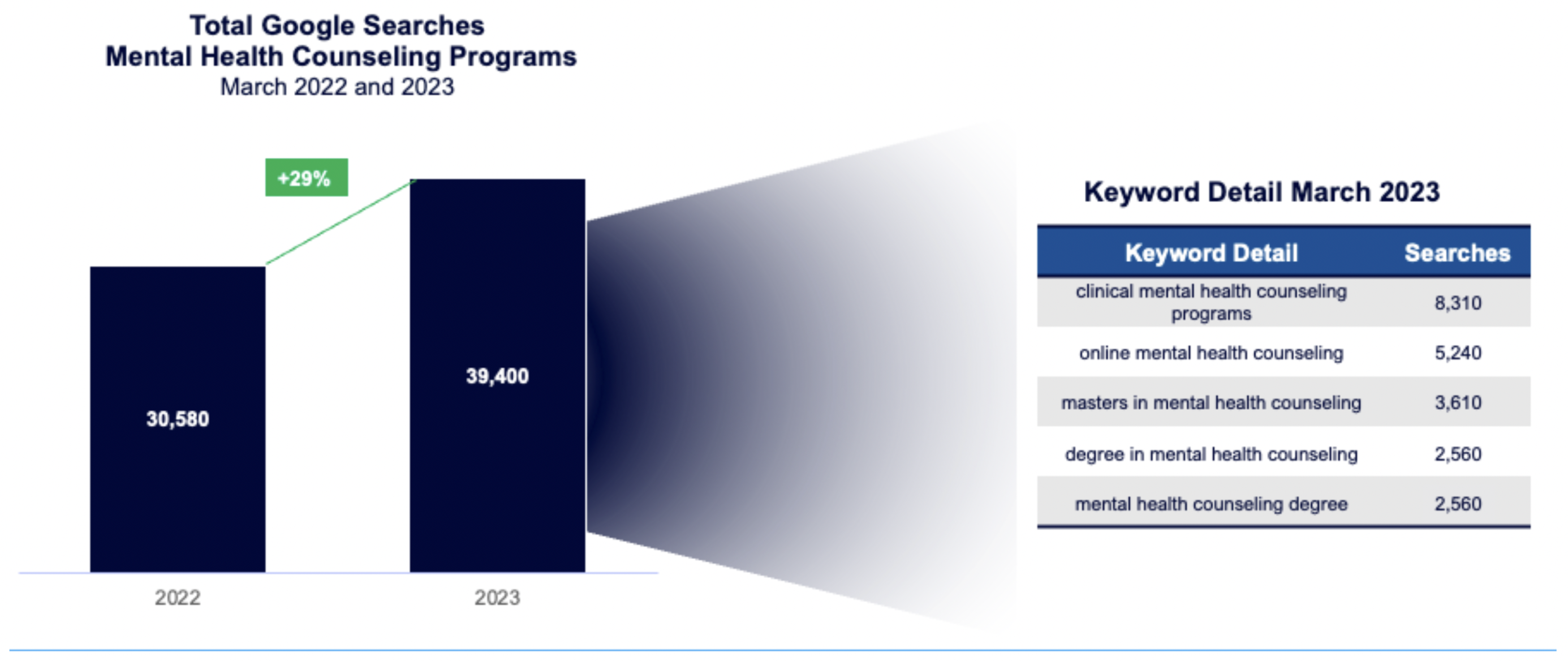
Source: Gray’s Keyword Search Dashboard
The Job Market
The US job market has been volatile since the Covid lockdowns ended in January 2021. We saw a surge of job postings that year, followed by a drop in 2022. We have not entirely recovered: overall US Job postings in March decreased 24 percent year-over-year, but opportunities for mental health counselors grew two percent.
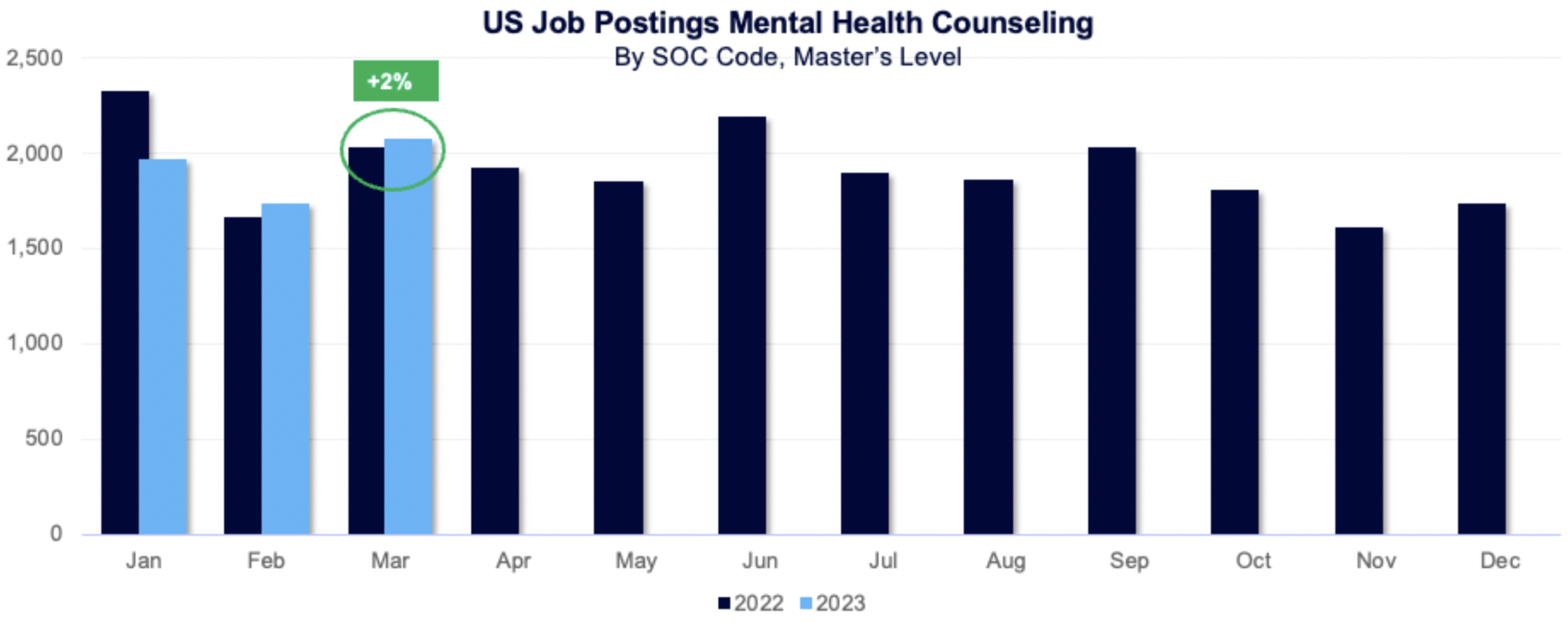
Source: Gray’s Job Postings Dashboard
We also looked at job postings data to see which industries post the most jobs for mental health counselors. The largest industry by far was healthcare, followed by nonprofits, hospitals and health clinics, education, and government. Of the top industries, average salaries are highest in hospitals/health clinics and human resources staffing and lowest in education. Overall, wages are low for a Master’s degree.
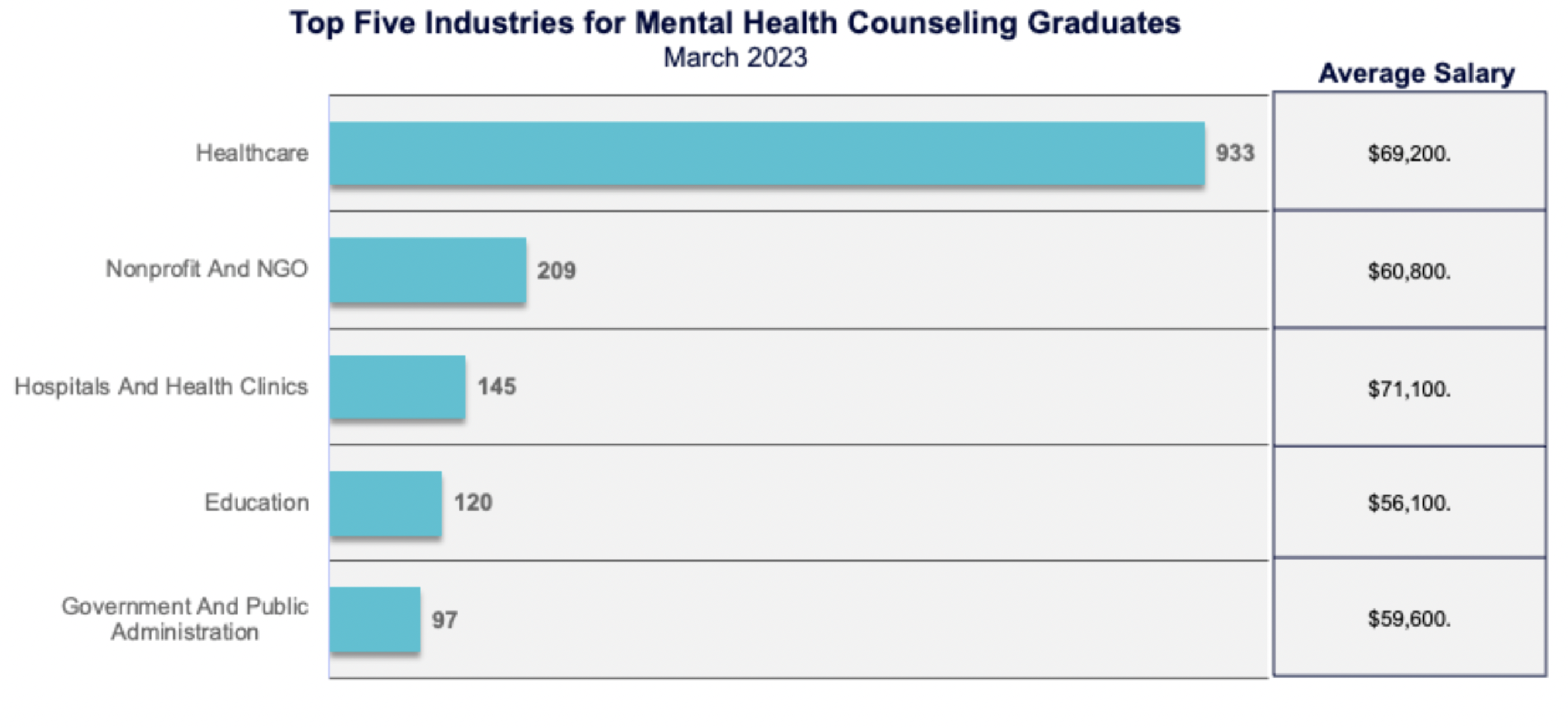
Source: Gray’s Job Postings Dashboard
In mental health counseling job postings, the most in-demand skill was case management, with 722 postings in March alone. Crisis intervention and substance abuse experience are also in high demand. After that, in-demand skills are a mix of group therapy, clinical experience, and other skills specific to the profession.
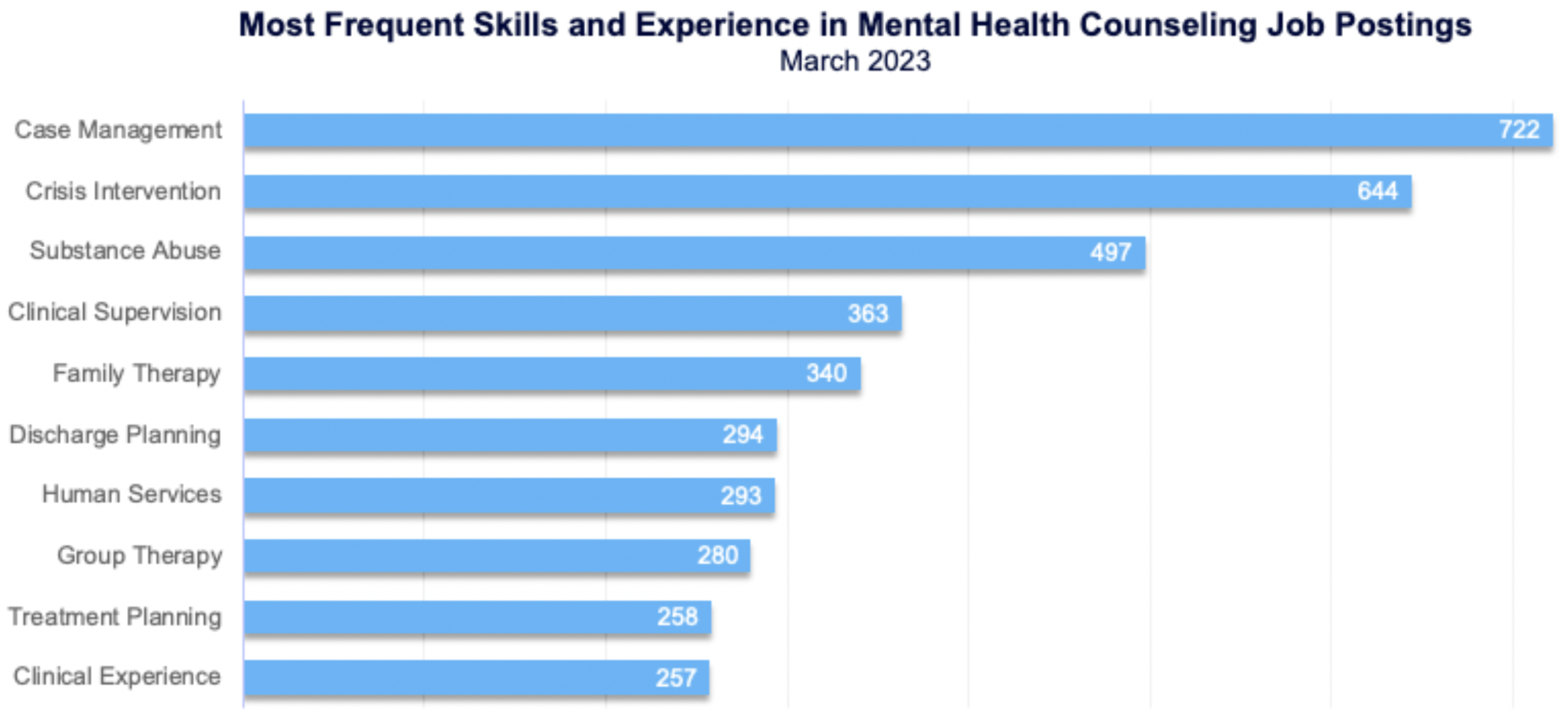
Source: Gray’s Job Postings Dashboard
Student demand for Master’s in Mental Health Counseling programs is growing based on enrollment, completions, and Google searches, and employment demand is strong in healthcare and nonprofit industries. If you are considering starting or growing this program at your institution, the national data indicates strong student interest and healthy workforce demand; your local market may differ.




